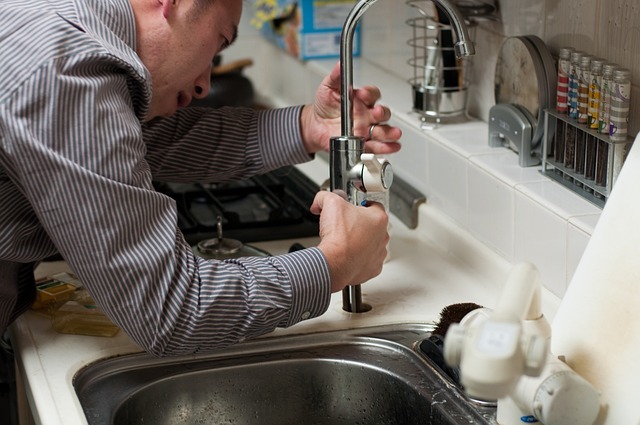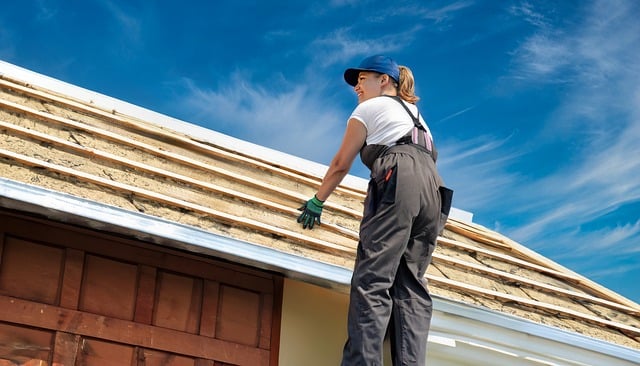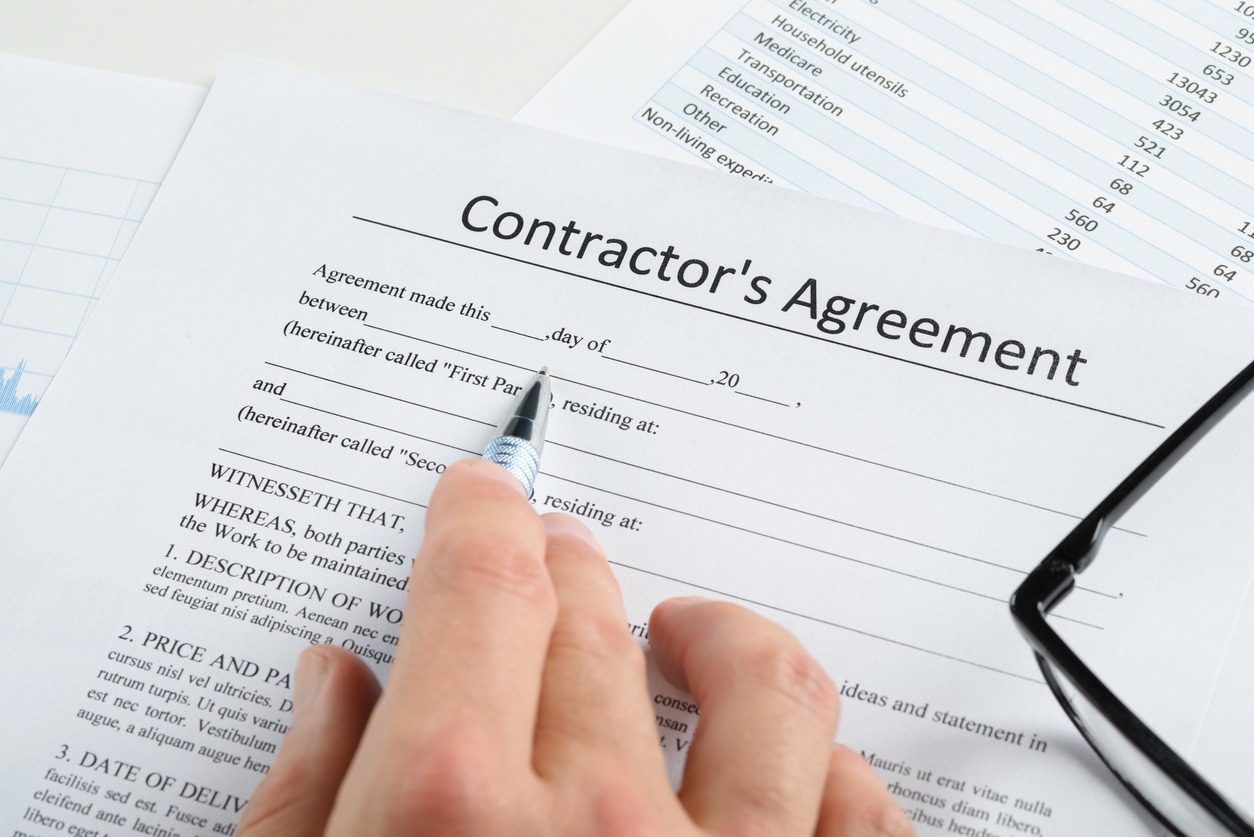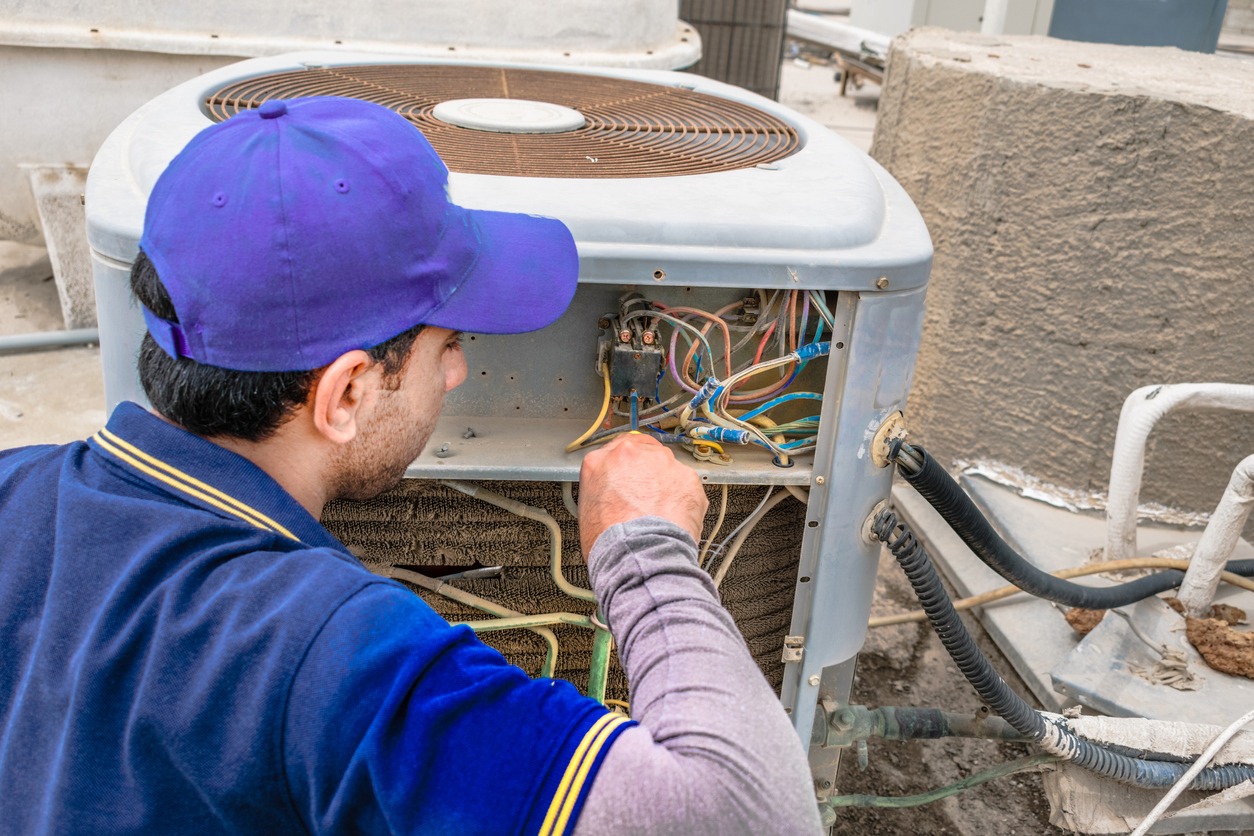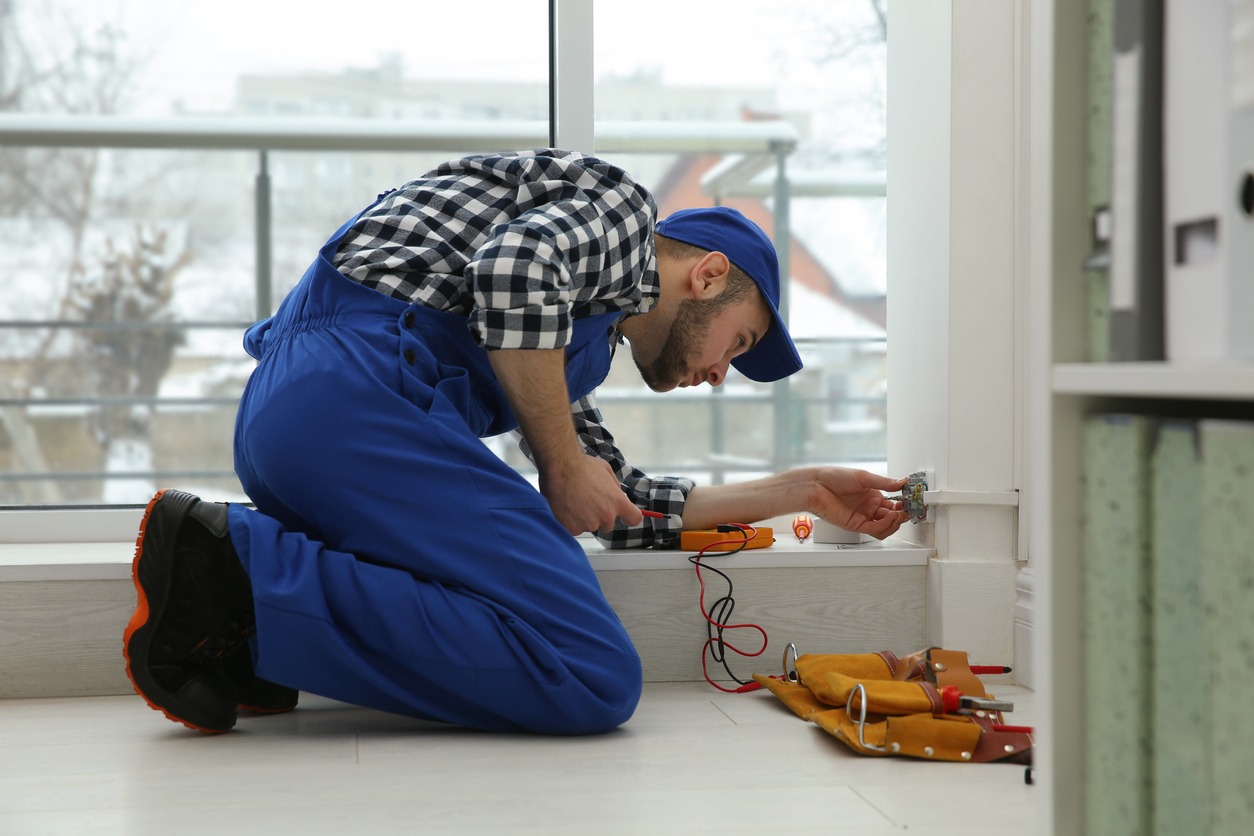Maintaining a home requires continual attention and care, but certain repairs are beyond the scope of DIY fixes, necessitating the services of professional handymen or repair companies. Recognizing when to call in a professional can save homeowners both time and money in the long term. Specialized service providers offer expertise in various fields—from plumbing to electrical work, and carpentry to flooring—ensuring that the job is done right the first time. These experts have access to the necessary tools and materials, and provide quality of service that guarantees effective and long-lasting solutions.
The process of hiring a professional for home repairs begins with understanding specific repair needs and then selecting the right service that specializes in addressing those issues. Evaluating the credentials of contractors is a critical step to ensure that a trustworthy and competent professional is entrusted with the job. Financial considerations, such as obtaining a fair quote and understanding the payment process, are also key to a satisfactory experience. Lastly, good communication with the service provider throughout the repair process can lead to better outcomes and fewer misunderstandings.
Key Takeaways
- Professional home repair services offer expertise and longevity in repairs compared to DIY fixes.
- Hiring the right professional involves evaluating their skills, credentials, and the financial aspects of the service.
- Quality workmanship from trusted professionals can provide peace of mind and potential savings.
Understanding Home Repair Needs
When tackling home repairs, homeowners must grasp the specific tasks at hand and the order of urgency for each repair to ensure effective maintenance and to address any damage.
Determining Repair Scope
To accurately determine the scope of repairs, one should begin with a thorough inspection of the home. This step highlights immediate areas of concern, such as damages that require urgent attention or conditions that might lead to further deterioration if not addressed promptly. The inspection process may also reveal less obvious, underlying issues, such as structural or electrical problems that are not visible at first glance. A well-defined repair scope ensures that resources are judiciously allocated to areas of the home that need them the most.
- Emergency home repairs typically involve issues that pose immediate threats to safety, like gas leaks or major water damage.
- Maintenance tasks tend to be more routine, aimed at preventing future issues through activities such as cleaning gutters or servicing HVAC units.
- Occasionally, a quick fix can address minor problems temporarily, but these should not be seen as long-term solutions.
Prioritizing Repair Tasks
Once the scope of repairs is established, homeowners should prioritize tasks based on several factors:
- Safety risks and potential for further damage
- The complexity of the repair work
- Cost considerations and available budget
- Impact on the day-to-day use of the home
Safety and prevention of further damage are typically at the top of the priorities list. Emergency home repairs should always be addressed first. Repair tasks can then be categorized as high, medium, or low priority, which aids homeowners in scheduling professionals for the necessary work and managing their budgets effectively. Prioritization also helps in determining whether to enlist a specialist for complex issues or a general handyman for simpler tasks.
Selecting Professional Services
When looking for professional services to handle home repairs, homeowners should prioritize finding vetted local options and understanding the scope of services offered by handymen. The right service can ensure quality work, adherence to local regulations, and timely completion of projects.
Assessing Local Options
Homeowners should start by creating a list of local service providers. Local professionals often have a better understanding of community-specific regulations and commonly like to maintain a good reputation within the community. A key advantage of local pros is their ability to respond swiftly to service requests and emergencies. To assess local options:
- Research: Check local business directories and online platforms.
- Verify Credentials: Ensure that each service provider is appropriately licensed and insured.
- Read Reviews: Look for recent, verified testimonials from previous customers.
It’s also beneficial to consult with neighbors, friends, or local online forums for personal recommendations, which can provide additional insights beyond what is available online. Note that handyman services typically cover a wide range of repair tasks. Therefore, assessing a handyman’s areas of expertise is crucial.
Evaluating Contractor Credentials
When selecting a contractor for home repairs, it’s critical to ensure they are properly licensed and insured. This establishes the contractor’s credibility and protects the homeowner from potential risks.
Verifying Licensing Requirements
Contractors must hold a valid license to legally perform work in most regions. This license indicates that the contractor has met the necessary qualifications and adheres to local building codes and regulations. Homeowners should:
- Check the contractor’s license: Confirm its authenticity and current status with the local or state licensing board.
- Match qualifications to project needs: A contractor’s license should cover the specific type of work required, whether it be electrical, plumbing, or general construction.
Confirming Insurance Coverage
Insurance is equally vital as it safeguards both the contractor and the homeowner during the project. Key insurance types include:
- Liability insurance: Ensures the contractor can cover any damages caused during the repair process.
- Workers’ compensation: Protects employees in case of job-related injuries, preventing the homeowner from being liable.
Homeowners should request proof of insurance and verify that the policies are active for the duration of the repair project.
Financial Considerations
When homeowners consider hiring professional services for home repairs, they must carefully evaluate the potential costs. This evaluation not only helps in budgeting but also in making informed decisions about whether to proceed with a professional or undertake a DIY approach.
Estimating Costs
The first step in hiring professional services is getting an estimate. An estimate is a detailed breakdown of costs related to labor, materials, and any other incidental expenses. A homeowner should obtain multiple estimates to have a clear understanding of the average price for the services needed. Estimates allow homeowners to compare the cost-effectiveness of different service providers.
- Labor Costs: Usually calculated on an hourly rate basis.
- Materials: List of all materials, their quantities, and prices.
- Additional Fees: May include travel time, urgent service premium, or after-hours charges.
Understanding Pricing Structures
Professional handymen or contractors may offer various pricing structures which can impact the overall cost. A homeowner needs to understand the difference between these structures to avoid unexpected expenses.
- Flat Rate: A single fee for the entire job, beneficial for predictable tasks with well-defined scopes.
- Hourly Rate: Charges based on the time spent by the professional on the repair, suitable for tasks with variable durations.
- Cost Plus: The service provider charges for the cost of materials and a markup.
- Project-based: Used for larger projects, a total project cost is provided.
It is essential for homeowners to inquire about potential additional costs that may not be immediately obvious, like extra charges for travel or expedited service.
The Repair Process
The repair process for home repairs involves careful planning and coordination. Homeowners should focus on scheduling repairs promptly and managing timelines efficiently to ensure that repair jobs are completed within a reasonable timeframe.
Scheduling Repairs
Homeowners must schedule repairs in advance to secure a spot with a skilled professional. It is essential to:
- Identify the necessary repairs and clearly articulate them to the service provider.
- Agree on a date and time that suits both parties.
- Confirm the appointment in writing, either through email or a contract, to ensure clarity and avoid misunderstandings.
Scheduling must factor in the nature and complexity of the repair job. Emergencies may require immediate attention, while others can be planned around the homeowner’s availability.
Managing Repair Timelines
Effective management of repair timelines is crucial to the timely completion of the repair job. Homeowners should:
- Discuss the expected duration of the repair with the service provider.
- Be aware of factors that could cause delays, such as part availability or weather conditions.
- Keep an open line of communication with the contractor to stay informed about the progress of the repairs.
Contractor availability and the scope of work also affect timelines. Homeowners should set realistic expectations for when the work will be done and be prepared for possible adjustments.
Quality of Service
When seeking home repair services, the caliber of service is critical, affecting not just the outcome but also the longevity and safety of the repairs. Homeowners value a job well done, which hinges on the provider’s expertise and adherence to professional standards of operation.
Checking References and Reviews
Reviews and references are tangible indicators of a service provider’s past performance. Before hiring, one should scrutinize:
- Online Ratings: Platforms like Yelp, Google, and Better Business Bureau provide a range of customer ratings which reflect overall satisfaction.
- Direct References: Prospective clients are advised to ask for a list of past customers. They can reach out to these clients and inquire about their experiences with the service provider.
A pattern of positive feedback typically signals a provider’s consistent quality, while diverse reviews might necessitate a closer evaluation.
Evaluating Professionalism
Professionalism is multifaceted and extends beyond the completion of the task itself. It involves:
- Communication: They should maintain clear, timely, and respectful communication with their clients.
- Experience: The provider’s experience can be gauged by the number of years they’ve been in business and the relevant certifications they hold.
- Service Presentation: This includes punctuality, the organization of the work site, and the clarity of the service agreement or contract.
A professional provider is expected to not only deliver superior craftsmanship but also to uphold the service standards that cultivate trust and reliability.
Specialized Repair Services
When dealing with complex systems like heating, ventilation, air conditioning (HVAC), or electrical setups, homeowners should consider hiring specialized professionals who are trained to handle such intricate work.
Hiring HVAC Specialists
HVAC specialists are trained to install, diagnose, repair, and maintain the various components of heating and cooling systems. For small plumbing tasks connected to HVAC, such as condensate drains or refrigerant lines, they are the appropriate experts to contact. These professionals should have certifications from recognized industry organizations, which ensure they are knowledgeable about the latest standards and practices.
- Certification: Look for HVAC professionals with credentials such as NATE (North American Technician Excellence) or HVAC Excellence.
- Services Offered: Heating and cooling system installation, maintenance, repair, and troubleshooting.
Finding a Licensed Electrician
Homeowners must ensure that any electrical work complies with local building codes and safety standards. For this purpose, one should enlist the services of a licensed electrician. They are qualified to handle complex electrical tasks, ensuring that all installations and repairs are done safely and efficiently.
- License Verification: Verify the electrician’s license status with the state’s licensing board.
- Electrical Services:
- Electrical system repairs, upgrades, and installations
- Inspection and testing of electrical components
- Implementation of energy-efficient and smart home solutions.
By ensuring that professionals are licensed and specialized in their field, homeowners can have confidence that the repairs will be conducted safely and to a high standard.
Contractor Materials and Tools
Additional Home Services
Home maintenance extends beyond repairs to include enhancements and updates. Homeowners often need a range of services to maintain and improve both the interior and exterior of their houses.
Home Improvement and Refinishing
For interior home improvement, flooring is a major consideration. Professional service providers offer options ranging from tile to carpet, with services including installation and refinishing. Hardwood floor refinishing can rejuvenate a room, while adding tile can provide a durable and aesthetic upgrade. Exterior services encompass painting and siding, ensuring that a house not only stands out but is also protected from the elements.
- Flooring Options:
- Hardwood Refinishing
- Tile Installation
- Carpet Laying
Appliance and Installation Services
When it comes to appliances, professional appliance repair and installation services are crucial for a home’s functionality. They handle the installation of new appliances and the repair of existing ones, ensuring they run efficiently. Whether it’s a dishwasher in the kitchen or a washing machine in the laundry room, expert technicians guarantee that homeowners avoid the inconvenience of malfunctions.
- Common Appliance Services:
- Dishwasher Installation
- Refrigerator Repair
- Washing Machine Maintenance
Navigating Emergencies and Repairs
In the face of a home emergency such as a burst pipe or a severe leak, swift action and informed decision-making are paramount. Homeowners often require a combination of quick fixes to prevent further damage and the expertise of professionals for complete, safe repairs.
Handling Emergency Repairs
When an emergency arises, it is crucial to initiate an immediate response to mitigate damage. Here are specific steps a homeowner can take:
- Identify the problem: For instance, with a leak, pinpointing the source is the first step to a quick fix.
- Shut off water: In the case of water-related issues, homeowners should promptly shut off the main water supply to prevent flooding.
- Use temporary solutions: Applying a patch over a burst pipe can contain the issue temporarily until professional help arrives.
It is vital for homeowners to have a basic emergency repair kit, which should include items such as duct tape, plumber’s putty, and adjustable wrenches, and know how to use them.
Effective Communication During Urgent Situations
Clear and timely communication can significantly impact the resolution of an emergency repair. Homeowners should:
- Convey urgency: When contacting a professional, it is essential to express the severity of the situation to receive prompt service.
- Describe the issue: Providing a detailed account of what happened, including what was done as an immediate response, aids in receiving accurate advice or assistance.
- Confirm availability: Ensure that the service provider has the necessary availability and is equipped to handle the emergency, especially if immediate assistance is needed.
Post-Repair Considerations
After a repair, the homeowner’s focus should shift to ensuring the longevity and effectiveness of the service provided. This involves meticulous post-repair inspections and a thorough understanding of service follow-ups and warranties.
Conducting Post-Repair Inspections
Once the handyman or contractor has completed the repair work, thorough inspections are crucial. Homeowners or a designated inspector should check that:
- All agreed-upon repairs are completed to satisfaction.
- No new issues have arisen as a result of the repairs.
An inspection checklist might include:
- Visual Inspection: Looking for obvious signs of incomplete or inadequate work.
- Functional Testing: Ensuring that repaired items are fully operational.
- Review of Work Area: Confirming that the area has been cleaned and left free of debris or hazardous materials.
Service Follow-Up and Warranties
Homeowners should discuss service follow-up and warranty terms prior to the commencement of work but revisiting them post-repair is equally important. Essential points include:
- Warranty Validity: Confirm the duration and extent of any warranties on parts and labor.
- Service Guarantee: Understand any guarantees the service provider offers regarding the quality of work.
- Documentation: Keep all related documents like receipts, warranty cards, and written guarantees in an accessible file.
It is recommended that homeowners schedule a follow-up service if offered, to ensure that repairs hold up over time and maintain the integrity of the property.
Useful Frequently Asked Questions for Hiring Professional Home Help
When hiring professionals for home repairs, it’s crucial that homeowners make informed decisions by asking pertinent questions and thoroughly vetting potential contractors.
What are the key factors to consider when choosing a contractor for home repairs?
Choosing the right contractor involves examining their experience, reputation, work quality, communication skills, and timeliness. Homeowners should seek contractors who specialize in the specific type of repair or renovation they need.
What should be included in a hiring checklist when contracting a professional for home renovation?
A hiring checklist should include verifying the contractor’s license, insurance, and bonding. Also, ensure they provide a detailed written estimate, a clear timeline for project completion, and references from previous clients.
How can I ensure that a home repair contractor is properly licensed and insured?
Homeowners can request to see physical proof of the contractor’s license and insurance certificates. Additionally, they can often check the validity of the license with their local or state licensing board online.
What steps should I take to effectively communicate with a home repair contractor throughout a project?
Establish clear lines of communication by determining a primary point of contact, agreeing on regular updates, and being precise about expectations. Documenting all conversations and changes in writing can also prevent misunderstandings.
What are the best practices for comparing bids and estimates from different home repair professionals?
When comparing bids, it’s important to ensure that they all include the same scope of work and materials. Homeowners should be wary of bids that are significantly lower than others as this could be a sign of corner-cutting or potential hidden costs.
How can I find reliable and trustworthy home repair services in my local area?
Homeowners can find reliable services by asking for referrals from friends and family, reading online reviews, and verifying the reputation of businesses through local trade organizations or the Better Business Bureau.
Useful Links for Evaluating Contractors
Here are list of links for useful questions to ask different types of contractors when hiring home help services:
- 20 Questions to Ask When Hiring Driveway Installation and Repair Services
-
20 Questions to Ask When Hiring Fence Installation and Repair Services
- 20 Questions to Ask When Hiring Garage Repair and Renovation Services
Final Thoughts
Hiring professional services for home repairs is a decision that holds significant weight in ensuring the quality and efficiency of the work done. The guide outlined in this blog post serves as a comprehensive roadmap for homeowners to navigate through the process of selecting the right professionals. From understanding the importance of expertise and experience, to conducting thorough background checks and ensuring proper communication, every step is crucial in guaranteeing a successful home repair project. It is imperative for homeowners to remember that investing time and effort in selecting the right service provider not only safeguards their home but also ensures peace of mind, knowing that the repairs are in capable hands.
Ultimately, the journey of hiring professional services for home repairs should be approached with diligence and informed decision-making. By adhering to the guidelines and tips provided in this guide, homeowners can enhance their chances of a smooth, hassle-free repair experience. This not only leads to satisfactory results but also contributes to the long-term value and integrity of their property. In essence, the key takeaway is that meticulous planning, careful selection, and effective collaboration with professional services are the cornerstones of achieving quality and efficiency in home repairs, transforming a potentially daunting task into a manageable and rewarding endeavor.

